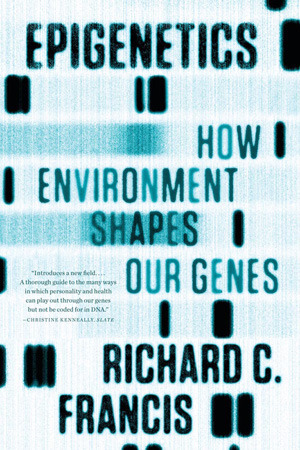What do you think?
Rate this book


256 pages, Paperback
First published January 1, 2011
Now, at first I was angry with this book. I've been a huge fan of Epigenetics for a while, and I was really hoping for some juicy details on things like inheriting fear or changing eye-color. It did touch on the subject of epigenetic differences in identical twins, and it did touch on inherited stress/famine responses, but mostly the book talked about gene regulation and effects on early childhood. But once I accepted that this was vital information, I got more invested in the book.
And THEN I got to the chapters about color blindness and Mules/hinnes. WOW that stuff is fascinating! And, of course, the book does a wonderful job of explaining things. Some things seemed oversimplified to me (but that might be because I'm planning on majoring in biology), but oversimplified is better than under-simplified when it comes to non-fiction.
You want to know whether or not I recommend this book?
readitreaditreaditreaditreaditreaditreaditreaditreaditreaditreaditreaditreaditreaditreaditreaditreaditreaditreaditreaditreaditreaditreaditreaditreaditreaditreaditreaditreaditreaditreaditreaditreaditreaditreaditreaditreaditreaditreaditreaditreaditreaditreaditreaditreaditreaditreaditreadit.
Read it.
It's not witty or anecdotal, but the subject is so exciting! And I never once got angry at the book for a lack of explanation.